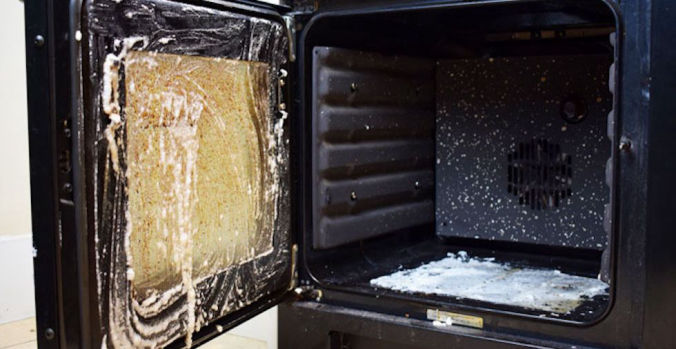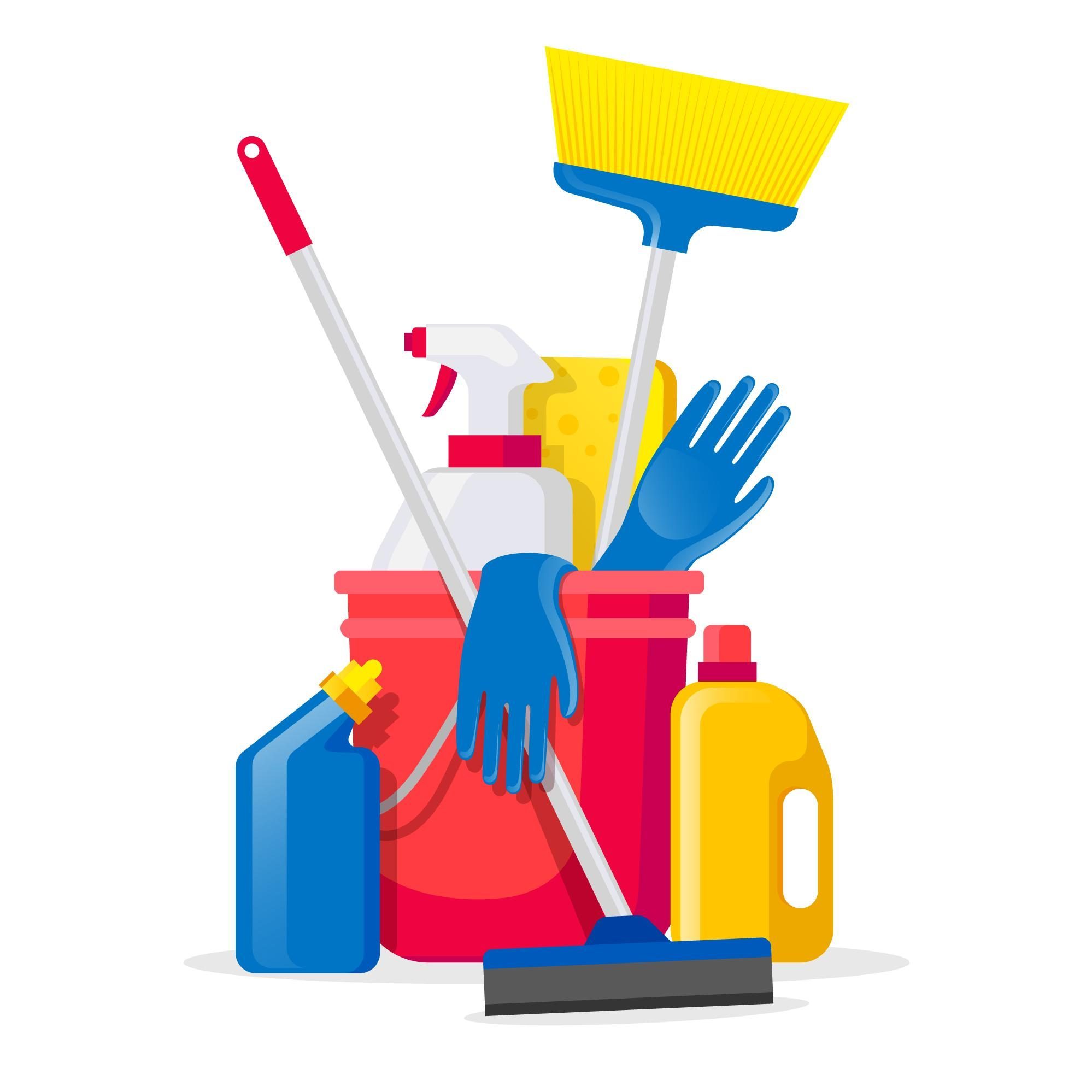Oven Cleaner: The Ultimate Guide to a Spotless Oven

Oven cleaning can be a daunting task for many homeowners. Over time, ovens accumulate grease, grime, and food residue that can be tough to remove. So you’ll need the right oven cleaner. But which one? Fortunately, there are a variety of oven cleaners available on the market that can help make the cleaning process easier and more effective. Oven cleaners come in different forms, such as sprays, gels, and powders, and are designed to dissolve and remove tough stains and build-up from oven surfaces.
When selecting an oven cleaner, it’s important to consider the type of oven you have and the specific cleaning needs you have. For example, if you have a self-cleaning oven, you may not need a heavy-duty cleaner. On the other hand, if your oven has not been cleaned in a while or has stubborn stains, a stronger cleaner may be necessary. It’s also important to follow the manufacturer’s instructions carefully to ensure safe and effective use of the product.
While oven cleaning is not the most glamorous task, it’s essential for maintaining a clean and hygienic kitchen. With the right oven cleaner and proper cleaning techniques, you can remove tough stains and grime from your oven and keep it looking and functioning like new. In this article, we will explore different types of oven cleaners, their benefits and drawbacks, and provide tips for effective oven cleaning.
Why Use an Oven Cleaner
Using an oven cleaner can be a great way to keep your oven clean and functioning properly. Here are some reasons why:
- Efficient cleaning: Oven cleaners are specially formulated to break down and remove stubborn grease, grime, and food residue from your oven. They can be particularly helpful for cleaning hard-to-reach areas, such as the back of the oven or the corners.
- Time-saving: Cleaning an oven can be a time-consuming task, especially if you haven’t cleaned it in a while. Using an oven cleaner can help you save time and effort by cutting down on the amount of scrubbing and elbow grease required.
- Preventive maintenance: Regularly cleaning your oven with an oven cleaner can help prevent buildup of grease and grime, which can lead to unpleasant smells and even fires. By keeping your oven clean, you can also extend its lifespan and reduce the need for costly repairs.
While there are many benefits to using an oven cleaner, it’s important to choose the right product for your needs. Be sure to read the label carefully and follow the instructions to ensure safe and effective use. Additionally, it’s a good idea to wear gloves and protective eyewear when using oven cleaner to avoid skin and eye irritation.
Overall, using an oven cleaner can be a great way to keep your oven clean and functioning properly. By taking the time to clean your oven regularly, you can enjoy delicious meals without worrying about unpleasant smells or safety hazards.
Types of Oven Cleaners

When it comes to oven cleaners, there are several different types available on the market. Each type has its own unique features and benefits. Here are some of the most common types of oven cleaners:
Spray Cleaners
Spray cleaners are the most popular type of oven cleaner. They are easy to use and come in a spray bottle that allows you to apply the cleaner directly to the surface of your oven. Most spray cleaners contain chemicals that break down grease and grime, making it easy to wipe away with a damp cloth or sponge.
Paste Cleaners
Paste cleaners are another popular type of oven cleaner. They come in a tub and are applied to the surface of your oven with a sponge or brush. The paste is left on the surface for a period of time, allowing it to penetrate and break down the grease and grime. Once the paste has done its job, it can be wiped away with a damp cloth or sponge.
Foaming Cleaners
Foaming cleaners are a newer type of oven cleaner. They come in a spray bottle and when applied, the cleaner foams up, allowing it to penetrate and break down grease and grime. Once the foam has done its job, it can be wiped away with a damp cloth or sponge.
Natural Cleaners
Natural cleaners are becoming increasingly popular due to their eco-friendly and non-toxic properties. These cleaners are made from natural ingredients such as vinegar, baking soda, and lemon juice. They are safe to use and do not emit harmful fumes, making them a great choice for those with allergies or sensitivities to chemicals.
Steam Cleaners
Steam cleaners are a great option for those who want to avoid using chemicals to clean their oven. These cleaners use hot steam to break down grease and grime, making it easy to wipe away with a damp cloth or sponge. Steam cleaners are also great for cleaning other areas of your kitchen, such as your stovetop and countertops.
How to Use an Oven Cleaner Safely

Oven cleaners are effective at removing tough, baked-on food and grease, but they can also be dangerous if not used properly. It’s important to take precautions to protect yourself and your loved ones when using oven cleaners. Here are some tips to help you use oven cleaners safely:
- Read and follow the manufacturer’s instructions carefully. Different oven cleaners have different ingredients and require different application methods. Make sure you understand how to use the specific product you have purchased.
- Wear protective gear. Oven cleaners are corrosive and can cause burns and skin irritation. Wear rubber gloves, eye protection, and a face mask to avoid exposure to the chemicals.
- Ventilate the area. Open windows and turn on fans to ensure adequate ventilation while using oven cleaners. The fumes can be harmful if inhaled in large quantities.
- Keep children and pets away. Store oven cleaners out of reach of children and pets, and keep them away from the area while you are using the product.
- Do not mix different oven cleaners. Mixing different oven cleaners can cause a dangerous chemical reaction that can release toxic fumes.
- Do not use oven cleaners on self-cleaning ovens. Self-cleaning ovens have a special coating that can be damaged by oven cleaners. Follow the manufacturer’s instructions for cleaning your self-cleaning oven.
By following these tips, you can use oven cleaners safely and effectively. Remember to always read and follow the manufacturer’s instructions, wear protective gear, and keep children and pets away from the area while using oven cleaners.
DIY Oven Cleaner Recipes
If you’re looking for a natural and cost-effective way to clean your oven, then DIY oven cleaners are a great option. Here are some recipes that you can try:
| Recipe | Ingredients | Directions |
|---|---|---|
| Oven Cleaner #1 | 1 cup baking soda 1/4 cup white vinegar 1/4 cup water | Mix the ingredients together to form a paste. Apply the paste to your oven and let it sit for 30 minutes. Wipe away the paste with a damp cloth. |
| Oven Cleaner #2 | 1/2 cup baking soda 1/4 cup hydrogen peroxide 1 tablespoon dish soap | Mix the ingredients together to form a paste. Apply the paste to your oven and let it sit for 20 minutes. Scrub the oven with a sponge or brush and wipe away the paste with a damp cloth. |
These DIY oven cleaners are effective and safe to use. They do not contain any harmful chemicals and are easy to make with ingredients that you may already have at home. However, it’s important to note that these cleaners may not be as strong as commercial oven cleaners, so you may need to use them more frequently or put in more elbow grease to get the job done.
It’s also a good idea to test these cleaners on a small area of your oven before using them on the entire oven to ensure that they do not damage the surface.
Tips for Maintaining a Clean Oven

Maintaining a clean oven is important for both its appearance and functionality. Here are some tips to keep your oven looking and working its best:
- Wipe up spills as soon as they happen: This will prevent them from burning onto the oven surface and becoming more difficult to clean later on.
- Use an oven liner: An oven liner can help catch spills and drips, making them easier to clean up. Plus, it can be removed and washed separately, so you don’t have to clean the entire oven every time something spills.
- Regularly clean the oven door: The oven door can accumulate grease and grime over time, making it difficult to see inside. Use a glass cleaner and a soft cloth to clean the door regularly.
- Remove and clean the oven racks: Oven racks can become coated with grease and grime, making them difficult to slide in and out of the oven. Remove them periodically and clean them with a degreaser and a scrub brush.
- Use a self-cleaning function: Many ovens come with a self-cleaning function that uses high heat to burn off any residue inside the oven. Follow the manufacturer’s instructions carefully when using this function.
By following these tips, you can keep your oven looking and functioning like new for years to come.
